MercoPress. South Atlantic News Agency
Agriculture
-
Monday, September 14th 2020 - 11:19 UTC
China's impact on poor Brazilians: prices of staples skyrocket, black beans 30%, rice 20%

Black beans are up nearly 30%, beef about 40% – Brazilians are facing a skyrocketing rise in food prices, caused by record exports to China and strong domestic demand. This rebound, amid the economic and social crisis caused by the new coronavirus pandemic, has led the president, Jair Bolsonaro, to ask the owners of supermarkets to show “patriotism” and “keep their profit margin as low as possible”.
-
Monday, September 14th 2020 - 11:18 UTC
Japan, China, South Korea ban pork imports from Germany; Spain, US and Brazil expected to benefit
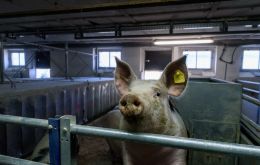
Japan suspended imports of pork and live pigs from Germany after a case of African swine fever (ASF) was confirmed in a wild boar in eastern Germany, the agriculture ministry said.
-
Saturday, September 12th 2020 - 09:26 UTC
German pork industry on tenterhooks: possible case of African Swine Fever
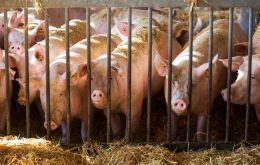
A deadly pig disease may have just entered Germany, which, if confirmed, could spook international buyers and ravage exports from Europe's biggest hog-producing nation. A suspected case of African swine fever has been identified in the eastern state of Brandenburg, the Agriculture Ministry said late this week, referring to the virus that kills most infected pigs within 10 days but is not harmful to humans.
-
Friday, September 11th 2020 - 08:38 UTC
Brazil opens to tariff free rice, following price complaints from consumers
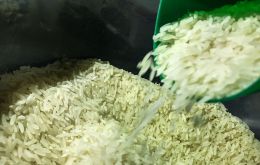
Brazil’s Executive Secretary of the Foreign Trade Board, “CAMEX,” voted on Wednesday to provide duty-free access for up to 400,000 tons of paddy and milled rice from all origins, effective this week through December 31, 2020. The measure was officially published in Brazil’s Official Gazette of the Federal Government and responds to growing consumer complaints about the retail price of rice, which with beans are staple for a majority of Brazilians.
-
Friday, September 11th 2020 - 08:36 UTC
It's official: Brazil's 2019/20 grains and oil harvest was a record 258 million tons
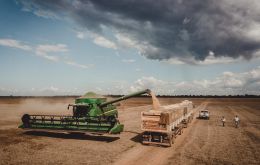
Brazil's 2019-20 grains and oilseeds harvest reached a 258mn t record as total acreage increased and yields performed well, despite some unfavorable weather conditions throughout the year.
-
Monday, September 7th 2020 - 08:18 UTC
US pork with ractopamine controversy in Taiwan
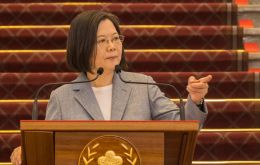
Taiwan's main opposition party the Kuomintang (KMT) began a push on Sunday for a referendum to block the easing of restrictions on US pork imports, which if passed could threaten a long-mooted free trade deal with Taipei's key ally Washington.
-
Wednesday, September 2nd 2020 - 09:46 UTC
Roundup weedkiller and cancer decision, appealed by Bayer at California Supreme Court
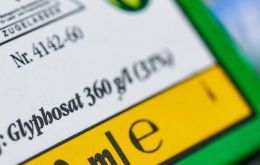
Bayer AG has asked California’s Supreme Court to review a decision awarding US$ 20.5 million to a groundskeeper who claimed the company’s Roundup weedkiller caused his cancer, arguing the ruling was at odds with federal law and settled legal principles.
-
Wednesday, September 2nd 2020 - 09:43 UTC
Argentina/China accord to produce nine million tons of pork delayed by environmentalists
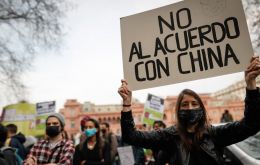
The signing of a Memorandum of Understanding between China and Argentina scheduled for this week has been delayed until November, the Argentine foreign ministry announced officially on Tuesday. The delay will enable to add an “article referred to the protection of the environment, natural resources, and bio-security”, added the release.
-
Wednesday, September 2nd 2020 - 08:20 UTC
Paraguayan wheat exports drop 42% in July because of stricter controls in Brazil

The Paraguayan Chamber of Cereals and Oilseed exporters and traders, Capeco reported that the country's exports fell by 42.2% in July, with 267,949 tons, compared to 464,005 tons shipped in the previous month. This represents a drop of about 196,056 tons month-on-month.
-
Tuesday, September 1st 2020 - 07:41 UTC
Texel “Double Diamond” sold for 350,000 guineas in Lanark
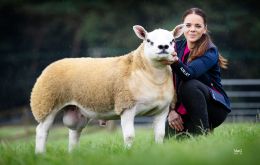
A young ram was sold for a record 350,000 guineas -- some US$ 490,000 at an auction in Scotland this week. The lamb, named Double Diamond, had generated buzz before the Scottish National Texel sale in Lanark started, according to a news release from the Texel Sheep Society.